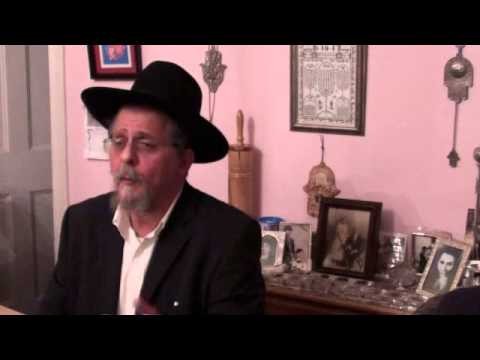Swindlers List Doron Taussig
Post on: 16 Март, 2015 No Comment

The Match King: Ivar Kreuger, the Financial Genius Behind a Century of Wall Street Scandals
by Frank Partnoy
PublicAffairs, 288 pp.
id you have a chance to read Bernie Madoffs plea agreement? I found it fascinating. The thing is clearly heavily lawyered, and probably PR-professionalized. Still, read this nugget, and bear in mind that its coming from someone who swindled Elie Wiesel.
I am actually grateful for this first opportunity to speak publicly about my crimes, for which I am so deeply sorry and ashamed. As I engaged in my fraud, I knew what I was doing was wrong, indeed criminal. When I began the Ponzi scheme I believed it would end shortly and I would be able to extricate myself and my clients from the scheme. However, this proved difficult, and ultimately impossible, and as the years went by I realized that my arrest and this day would inevitably come.
What are we supposed to do with this? Do we try to take it seriously? Because really, given everything thats happened, how can we? I feel like I cant find an appropriate context for engaging with it. Just reading it feels awkward, like riding the bus home with someone whos just mugged you.
Its hard to get your head around greed like Madoffs. But its worth trying, if only to better spot future swindlers. A good way to begin is to take a closer look at previous ones.
One such individual was Ivar Kreuger. A Swedish industrialist in the 1920s whose core business was matchesa ubiquitous product at the time, used for heating, cooking, lighting, and smokingKreuger was also an international financier, and such a gifted one that his businesses survived the 1929 stock market crash. Eventually, though, the collapse of global finance caught up to him, and when it did, some troublesome details about his practices came to light. Word spread that he was a fraud. And yet, he was, somewhat oddly, completely forgotten.
Enter Frank Partnoy, once a banker at Morgan Stanley, now a professor of law and a chronicler of Wall Street greed and malfeasance. Partnoys mission in his new book, The Match King: Ivar Kreuger, the Financial Genius Behind a Century of Wall Street Scandals. is to revive Kreuger, and to reconsider himto assess how much of the mans business was legitimate, and how he pulled off the illegitimate parts. Lets stipulate up front that this isnt the easiest book to read: Partnoys attempts to humanize his subject, such as vague allusions to Kreugers relationship with Greta Garbo, feel empty, andmore importantlythe financial specifics arent particularly accessible. Partnoy is an expert on Wall Street matters, and either hes writing for his peers or he doesnt remember how much the layman doesnt know. Still, theres a lot to pique the interest here, not least the unjustly forgotten subject.
Ivar Kreuger was a huge deal in his day. After making enough money to purchase a few match factories, he built up his company, Swedish Match, to control the market in his home country. Then he hit on two ideas that captured the zeitgeist of his time perfectly. The first was to lend money to European governments at low interest rates, in exchange for the rights to monopolies on match sales in their countries. (In postWorld War I Europe, governments were hard up, and many didnt share Americas aversion to monopolies.) The second idea was to finance his loans with American capital. America, of course, was roaring: investors were exuberant to the point of, um, irrationality. There were more day traders per capita during the early 1920s than at any other time in history, Partnoy writes.
It took a good deal of business savvy for Kreuger to persuade various power brokers to work with him. Partnoy recalls how the tycoon memorized tons of factoids about the German luxury liner Berengaria before boarding it for a trip to the U.S. so that by the time he docked Kreugers fellow passengers would be buzzing about his intellectual prowess. I also got a kick out of the descriptions of Kreugers powerful but, it seems to me, somewhat antiquated speaking style, which was highlighted by long pauses that could last several minutes. These weighty silences helped to win over a respected American investment bank called Lee, Higginson & Co. and Kreuger was off and running. He began by securing monopoly deals, first in Poland and eventually in countries from Ecuador to Latvia. Investors were not disappointed: Kreuger paid them huge dividends, at times as high as 25 percent.
Without his investors knowledge, Kreuger set up subsidiaries in numerous countries, moved money between them freely, and played fast and loose with his balance sheets. No one looked too closely at these maneuverings; whenever someone had reason to question him, Kreuger distracted them by paying out bigger dividends. His American creditors did assign an auditor to him, but Kreuger essentially bought the man off with fancy vacations.
Partnoy says theres scant evidence that Kreuger did anything fraudulent or illegal throughout much of his career. His match business was real, and profitable. It just wasnt always profitable enough to pay the dividends he promised, and Kreuger had to keep borrowing to stay above water. In order to justify that borrowing, he had to keep striking deals with new countriesthat is, he had to keep growing.

Kreuger understood that markets are psychological, and that, if he could inspire confidence, he could stay afloat. It was in this way that he initially survived the great crash of 1929he simply acted as though it didnt affect him, and kept paying dividends. Eventually, though, his funds dried up. He went to Italy, hoping to make a Hail Mary monopoly deal that would resurrect his business; its not known what was said in his meetings there, but when he returned home, he went to a lithographer and forged forty-two Italian treasury notes. Presumably he planned to use these to persuade lenders or auditors that he had a deal with Italy, and, in fact, one of his partners offered them as collateral to some Swedish banks. As a condition of the loans, however, the bankers wanted to go over Kreugers
finances carefully. Before long, authorities were asking questions about the forged notes. And that, more than anything else, sealed Kreugers reputation as a fraud. In 1932, Kreuger took his own life by shooting himself in the heart.
On the back cover of The Match King. we are promised a prescient parable. Were left to draw the parallels between Kreuger and todays financial villains on our own. But theyre not that hard to find. The first has to do with the individual psychology of these fraudulent financiers. We like to think that cheaters set out to cheat, and never intended to play the same game as the rest of us. But with Kreuger, we see thats not true: he set out to run a legitimate business, and it wasnt until things got rocky that his predisposition toward slipperiness took over. As far as character flaws go, weakness, not malice, led him to his fraud. Remember when Madoff said he believed his scheme would end shortly? If Kreuger is any guide, that may have been true. This doesnt absolve him, of course. But it does help us understand where the trouble started.
The problem continues when a fraud is exacerbated by systematic neglect. In Kreugers case, Partnoy writes, Overeager investors, sloppy auditors, and pushover directors bear much of the blame. If they had simply demanded to know how Ivar could pay 25 percent dividends while receiving 8 percent interest on government loans, they might have generated enough skepticism to dampen the meteoric rise in the prices of his securities. But no one wanted to question Ivar on the way up. The parallels to Madoffand, indeed, to the broader collapse of the financial marketsare easy to see. The returns Madoffs firm offered, though not stratospheric, were suspiciously consistent, year after year, and he was famously vague about his investment strategy. And yet his investors, with few exceptions, remained credulous to the end.
Which brings us to the final lesson we might learn from Kreugers story. Partnoy writes, The lesson of Ivar Kreuger is not that his businesses were illegal. It is that they were alegal. Im not sure I like this formulation. I looked up alegal in the dictionary, and it turns out its not a word. That may be because the concept isnt that valuable. Sure, there are gray areas in the law. But most of the things Kreuger did to get himself into a mess were perfectly legal and unregulated. Indeed, as Partnoy points out, the Securities Exchange Act and the Securities Exchange Commission both came to be in direct response to the collapse of Ivars companies.
Here, of course, the parallels with Madoff end: the dude broke the law. But laws that arent enforced arent much good, and as we now know, the SECespecially under its deregulation-minded former chairman, Christopher Coxfailed to uncover Madoffs schemes despite repeated warnings.
Human nature being what it is, we probably ought to accept that there will always be brilliant con artists like Ivar Kreuger and Bernie Madoff, who are willing and able to bilk gullible investors out of their life savings. What we dont have to accept is a federal government willing to let them get away with it.














